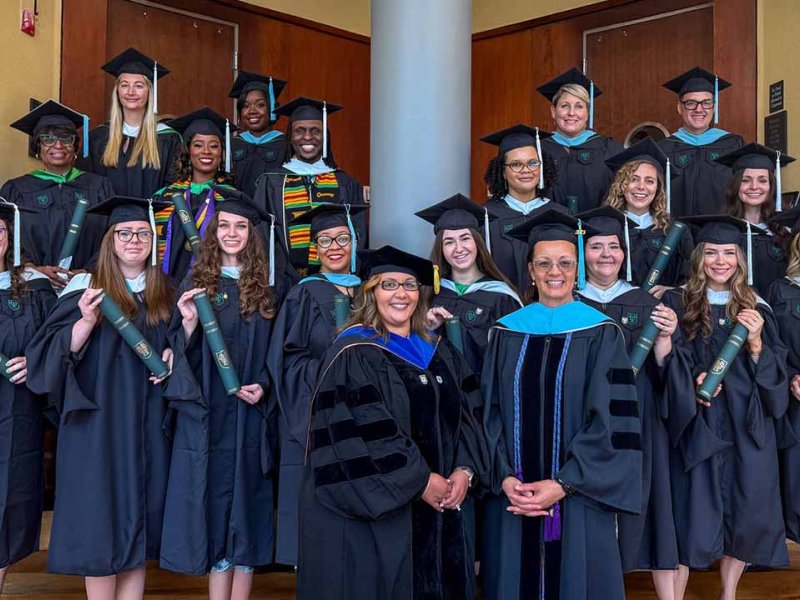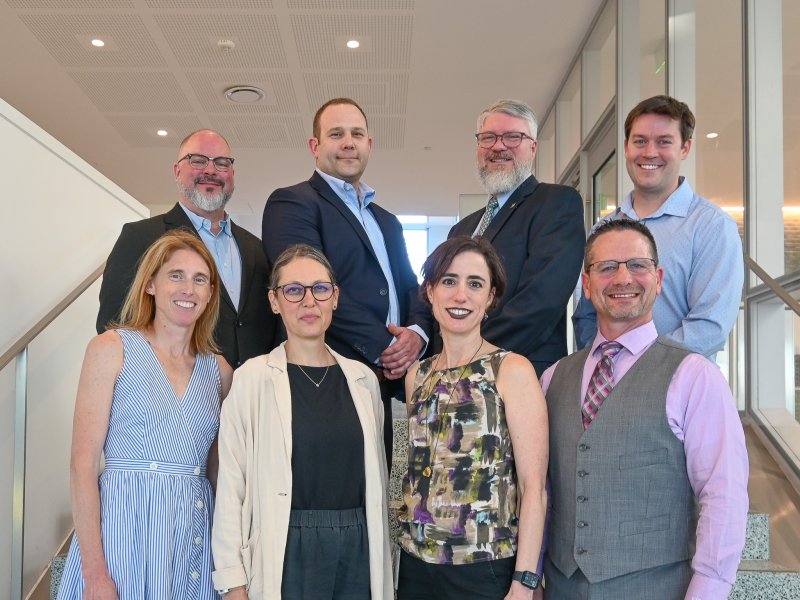Graduate Certificate in Learning Experience Design
Request Information
By submitting this form, you agree to receive information about the Tulane School of Professional Advancement’s programs via email, phone and/or text. You may opt out at any time.
Graduate Certificate in Learning Experience Design at a Glance
The Learning Experience Design (LXD) graduate certificate prepares graduates with the knowledge, skills, and competencies needed to enter or advance in the new and fast-growing field of learning experience design in eLearning spaces in PreK-12, higher education, corporate, government, and non-profit sectors. We combine the principles of instructional design, instructional technology, learning experience and user experience design and leverage SoPA’s in-house expertise in these professions.
TIME
Earn your graduate certificate in just four courses or 12 credit hours.
FACULTY
Nationally recognized faculty who practice what they teach and help you succeed beyond the classroom.
LOCATION
Flexible online courses that match your schedule. Accelerate your career without putting your life on pause.
BENEFITS
Course credit for experience and 20% tuition discounts available.
ADMISSIONS
Rolling admissions. No test scores. No recommendations. Four start dates. We make the admission process easy.
Earn Your Certificate or Master’s of Education with a Specialization in Learning Experience Design
Tulane offers two pathways to become an expert in learning experience design. Students will connect instructional design and learning design theory and frameworks to practice in our digital and interactive media labs. Through our LXD courses, students can grow their practice and skills and expand their career options.
Learning Experience Design Graduate Certificate
Students take three required courses and choose one additional elective. All courses are available online.
Requirements: Bachelor’s degree from an accredited institution in any subject.
Master’s of Education with a Graduate Certificate in Learning Experience Design
Students preparing to design in eLearning spaces in PreK-12, higher education, corporate, government, and non-profit sectors may choose to pursue a MEd with a Graduate Certificate in Learning Experience Design from Tulane. Students take a total of 30 credits, with 15 of them focused on LXD. For more information, please visit our MEd website.
Requirements: Bachelor’s degree from an accredited institution in any subject.
To receive more information on any of our Learning Experience Design pathways, please email Ronni Tyger.
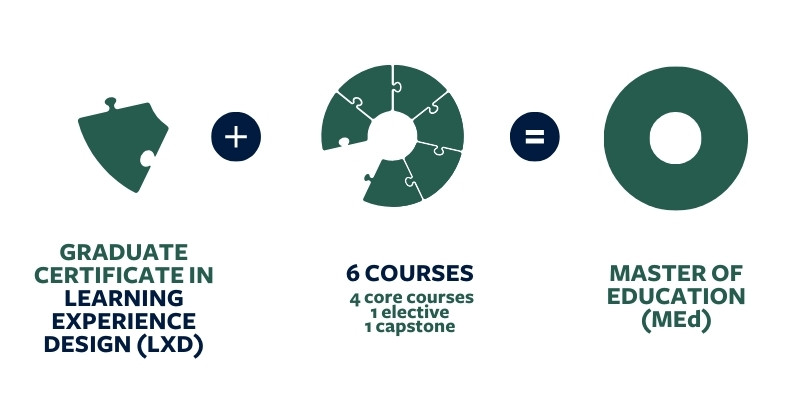
Our Rationale
PreK-12 schools, higher education, corporations, and non-profits continue to create and emphasize online learning, which makes the demand for LXD experts stronger than ever.
Our program is designed to:
- Introduce students to instruction systems design, processes, and analysis
- Examine the latest trends and issues in learning experience design and learning equity; learn design thinking processes
- Practice design thinking with learning equity and access in mind
- Build a career-ready portfolio using a variety of multimedia applications used to create interactive instructional materials, simulations, and learning objects, such as Adobe Creative Cloud, Microsoft Office Suite, Camtasia, H5P, Articulate 360, and related software currently used in the learning design field
- Ensure that students learn to develop equity-centered, inclusive learning experiences for diverse learners
Our Faculty Practice What They Teach
Our instructors bring extensive backgrounds in education, teaching, and leadership. With small class sizes and collaborative learning opportunities, students are able to build close relationships with both professors and peers, helping to support our candidates’ success in the classroom and beyond.

SoPA Faculty Feature
“The teaching and learning environment we create can be one of the most valuable and memorable experiences we model for our students.”
Hazel Woods, Ph. D.
Associate Director,
Professor of Practice
Education Program
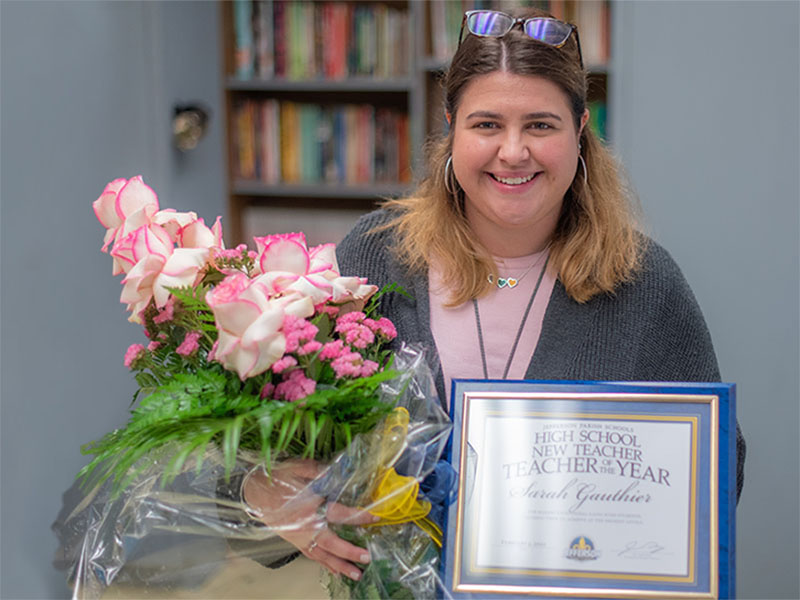
SoPA Student Spotlight
“I am so grateful for all that the education program at Tulane SoPA has taught me.”
Sarah Gauthier
Tulane SoPA class of 2022
Career Outcomes for Students who Earn the Learning Experience Design Graduate Certificate or Degree
Students who earn an LXD certificate or MEd with a specialization in LXD may go on to become instructional designers, PreK-12 or higher education learning experience designers, learning experience corporate trainers, or online curriculum designers.
Certificate Requirements
To apply for the Learning Experience Design Graduate Certificate, students should select the graduate application and choose the certificate. Students must have earned a Bachelor's degree from a regionally-accredited college or university with at least a 3.0 cumulative GPA. No GRE is required. Students must submit a 250-500 word personal essay, their CV, and their transcripts.
To apply for the MEd degree, students should select the graduate application and choose the MEd- Learning Experience Design. Students must have earned a Bachelor's degree from a regionally-accredited college or university with at least a 3.0 cumulative GPA. No GRE is required. Students must submit a 250-500 word personal essay, their CV, and their transcripts.
EDUC 6400 Foundations of Instruction Design & Applications
This course will introduce students to historical and contemporary learning theories, frameworks, and models; instruction systems design, processes, and analysis; learning technology innovations; ethics and equity, diversity, and inclusion within the field of Instructional Design. Using a practice-oriented approach and real-world case studies, students will gain experience applying instructional design principles to solve learner-centered design challenges.
EDUC 6410 Trends and Issues in Learning Experience Design & Learner Equity
This course uses an experience-design lens to explore trends and issues in learning experience design. Students will be introduced to Learner Experience Design (LXD) principles and processes as examine strategies to create more equitable student outcomes in learning design. Students will research, read, reflect and discuss problems and viable solutions for current issues in learning design.
EDUC 6420 Learning Experience & Interaction Design Studio
This course examines a range of theories, skills, and processes for designing and developing interactive, learner-centered educational materials. Using a practice-oriented approach and real-world case studies, students will learn to apply Learner Experience Design (LXD) principles and process to create authentic, inclusive learning experiences using an interactive design studio while developing their design thinking skills. Pre-requisite: EDUC 6410.
EDUC 6430 Emerging Technologies & Learning Perspectives
This course examines emerging learning technologies and their application to learning and education. Some included technologies are the Internet of Things (IoT), Augmented Reality (AR), Virtual Reality (VR), Artificial Intelligence (AI), and Machine Learning (ML). Emerging learning theories and methodologies, and emerging learning behavior models for inclusive learning design in fast-changing, innovated digital spaces are explored. Using case studies, students will research, read, reflect and discuss real-world learning challenges and viable solutions founded in emerging learning technologies and theories. Pre-requisite: EDUC 6400 or EDUC 6410.
EDUC 6440 Learning Technology Principles & Applications
This course is an introduction to learning technologies, surveying current tools, applications, software, and hardware, and Learner Experience Design applications, including interactive media, video, editing, and digital design. Students gain hands-on experience in identifying, creating, implementing, and evaluating learning technologies for inclusive learner-centered design. Using a practice-oriented approach and real-world case studies, students will begin to learn design thinking to change the way we engage diversified learners in online education.
EDUC 6450 Game-based Learning Technology & Design
This course investigates game-based learning (GBL) and gamification applications, including game-design elements and principles, GBL technologies, gaming literacies, gaming models, simulations, immersive learning and virtual reality, and augmented reality from a diversified learner experience lens, including adult learners in higher education and corporate environments and K-12. Students explore the potential of current GBL and analyze the role of game-based learning from a historical perspective. Pre-requisite: EDUC 6400 or EDUC 6410.
EDUC 6460 Mobile Learning Design & Studio
This course investigates mobile learning principles and strategies through the lens of learning equity. Students will research, read, reflect and discuss mobile learning applications in online learning. Using a practice-oriented approach and real-world case studies, students will apply Learner Experience Design principles and process to their own mobile learning design project using an interactive design studio. Pre-requisite: EDUC 6400 or EDUC 6410
We offer a 20% discount to full-time teachers and paraprofessionals, including classroom assistants and assistant teachers. Click here for information about SoPA tuition and fees or visit out teacher discount page here.
Admissions Deadlines
SPRING
SEMESTER
JAN 1
SUMMER
SESSION 1
MAY 1
SUMMER
SESSION 2
JUN 1
FALL
SEMESTER
AUG 1
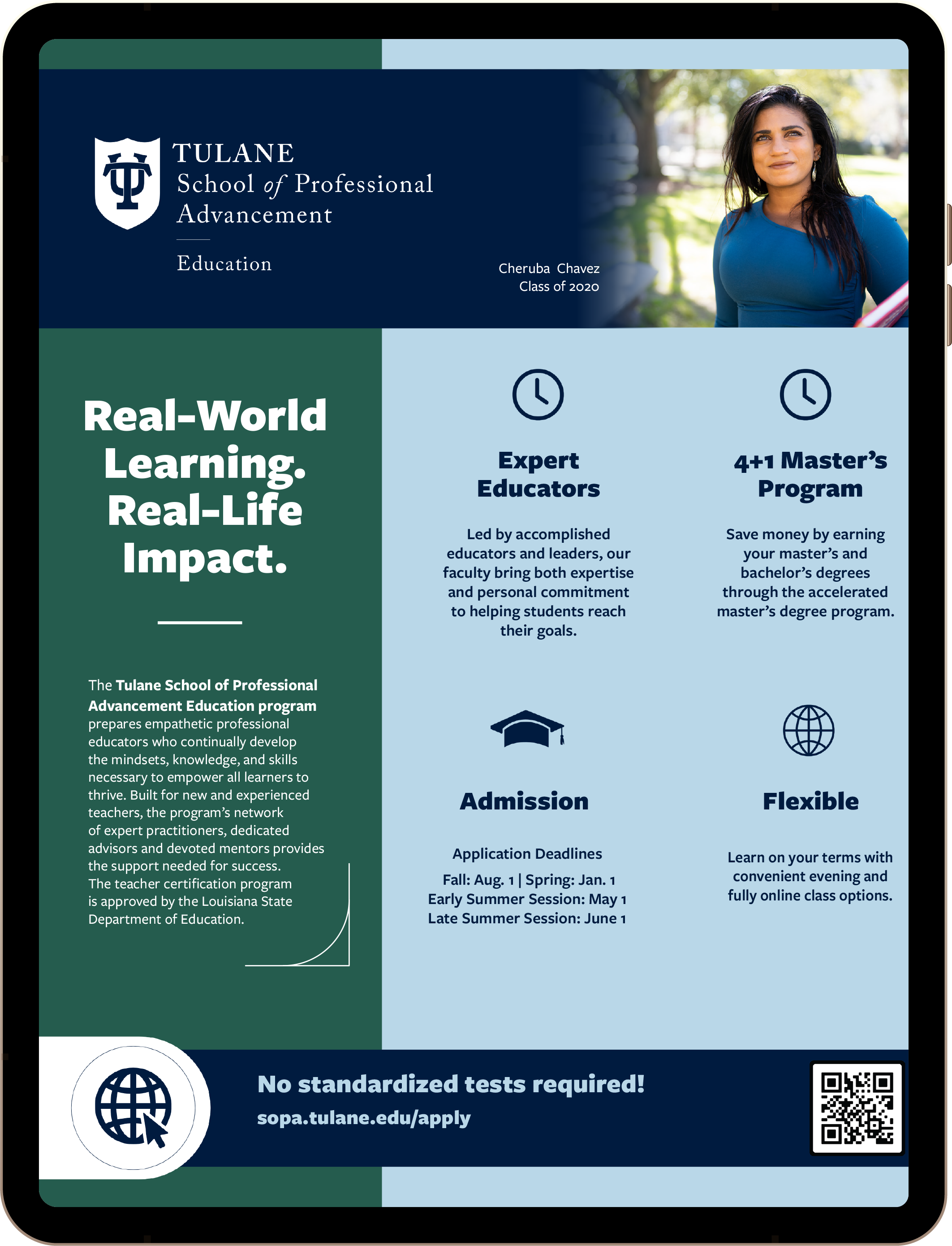
Enter your email to download our Education e-brochure.
By submitting this form, you agree to receive information about the Tulane School of Professional Advancement’s programs via email, phone and/or text. You may opt out at any time.

